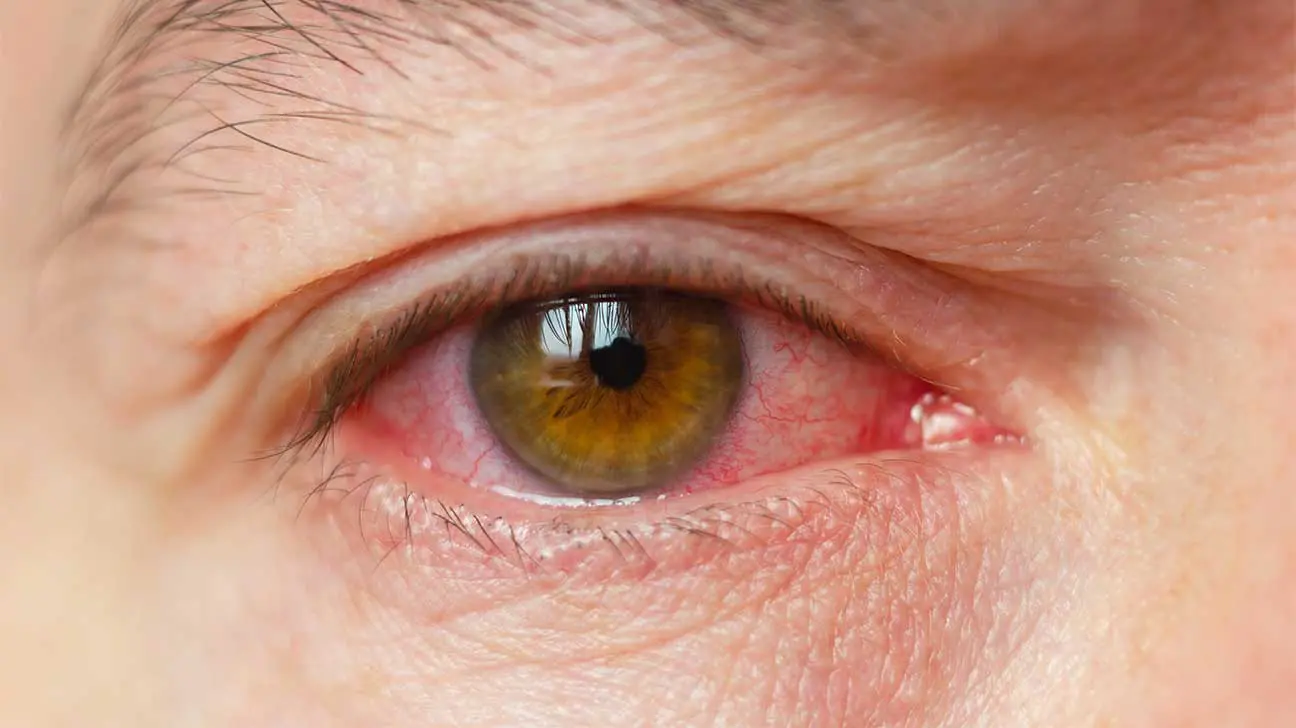
Cocaine is a highly addictive illicit drug that stimulates the central nervous system. The central nervous system, which affects the visual system, is composed of the brain and spinal cord.
Cocaine use can lead to effects on the eyes and vision as a result of how it interacts with certain regions of the brain.
Cocaine can be used by:
- snorting cocaine
- smoking cocaine
- injecting cocaine
- plugging cocaine
- rubbing cocaine onto the gums
Cocaine use may cause “cocaine eyes,” in the short-term and can also increase the risk for vision loss and developing certain ocular conditions.
Medical conditions caused by cocaine use may be treated within some inpatient substance abuse treatment programs.
What Are Cocaine Eyes?
Cocaine eyes is a term used to refer to the side effects cocaine can have on the appearance of the eyes following drug use, and visual impairment caused by cocaine. Effects of drugs like cocaine on the eyes are some of the most visible signs of substance use.
Signs of cocaine eyes:
- dilated pupils
- sensitivity to light
- changes in eye color (e.g. bloodshot eyes)
Cocaine eyes are caused by the effects of cocaine on chemicals in the brain like dopamine. Taking cocaine can boost the activity of dopamine in the brain, which can cause a dilation of the pupils in addition to effects on muscle movement and mood.
The eyes can also become red or bloodshot as a result of cocaine’s effects on the blood vessels. Cocaine constricts the blood vessels, and at the same time increases vital signs such as heart rate, body temperature, and blood pressure.
Cocaine has anesthetic properties, which means that people who experience eye damage may not be aware of the damage caused by their cocaine use right away.
Can Cocaine Cause Visual Impairment?
Cocaine can have serious effects on the eyes, particularly after a cocaine binge. Using high doses of cocaine, or multiple doses of cocaine within a short window, puts excessive strain on the brain and therefore the visual system.
Cocaine may cause changes in vision, including hallucinations. Hallucinations can occur as a result of excessive amounts of dopamine in the brain.
Excessive dopamine is associated with psychiatric disorders such as schizophrenia, as well as anger and a tendency towards violence.
People with underlying ocular conditions and a history of mental illness may be at greater risk for visual impairment after using cocaine. Vision problems can also be influenced by dose taken, polydrug abuse, and genetics.
Long-Term Effects Of Cocaine On The Eyes
Cocaine use has been associated with a range of eye conditions. Chronic use of cocaine can cause severe effects on physical health, mental health, and affect numerous areas of the body.
Glaucoma
Glaucoma can develop as a result of changes in blood pressure. Cocaine use may cause long-term increases in fluid pressure in the eyes.
Keratitis
Cocaine abuse can cause cornea inflammation, which can distort vision. Chronic inflammation can lead to ulcers, lesions, and perforation of the cornea.
Endophthalmitis
Endophthalmitis refers to ocular inflammation that can develop as a result of infection. This can develop in people who use unsanitary or “dirty” needles to inject cocaine. This condition can lead to vision loss and loss of the eye in severe cases.
Nystagmus
Cocaine use can cause changes in eye movements. Nystagmus is a condition of rapid eye movement and can be a sign of cocaine-induced brain damage.
Maculopathy
Chronic cocaine use may cause the degeneration of the retina, also known as maculopathy. This can lead to vision loss, blurred vision, and distorted vision.
Jaundice
Jaundice is a condition that develops as a result of liver damage or failure. This can cause a yellowing of the eyes, as well as yellowed skin.
Research from journals such as the Canadian Journal of Ophthalmology has found that some ocular conditions can develop in people without other underlying risk factors for visual problems or prior ocular trauma.
Treatment For Cocaine Abuse And Addiction
Cocaine can cause a range of effects on physical appearance, behavior, mood, and mental health. Using cocaine can put a person at risk for developing addiction, which can lead to chronic struggles with health, employment, and other aspects of everyday life.
According to the National Survey on Drug Use and Health, about 5.5 million people in the United States used cocaine or crack cocaine in 2019. About one million met the criteria for cocaine use disorder.
Treatment programs for cocaine abuse and addiction include:
- detox programs
- inpatient and residential rehab
- outpatient rehab services
- sober living and therapeutic communities
- supportive housing programs
Detox, behavioral therapy, and wraparound social support services can promote long-term recovery from cocaine addiction and connect people to medical care for chronic health issues.
If you or a loved one is using cocaine, you’re not alone. Call our helpline today to learn more about cocaine addiction and available addiction treatment options near you.
Addiction Resource aims to provide only the most current, accurate information in regards to addiction and addiction treatment, which means we only reference the most credible sources available.
These include peer-reviewed journals, government entities and academic institutions, and leaders in addiction healthcare and advocacy. Learn more about how we safeguard our content by viewing our editorial policy.
- Canadian Journal of Ophthalmology—Bilateral Rhizopus keratitis in a cocaine user
https://www.canadianjournalofophthalmology.ca/article/S0008-4182(15)00415-9/pdf - U.S. National Library of Medicine: PubMed—Cocaine snorting may induce ocular surface damage through corneal sensitivity impairment
https://pubmed.ncbi.nlm.nih.gov/25644620/ - National Institute on Drug Abuse—Cocaine DrugFacts
https://www.drugabuse.gov/publications/drugfacts/cocaine - Substance Abuse and Mental Health Services Administration—Key Substance Use and Mental Health Indicators NSDUH 2019
https://www.samhsa.gov/data/release/2019-national-survey-drug-use-and-health-nsduh-releases


